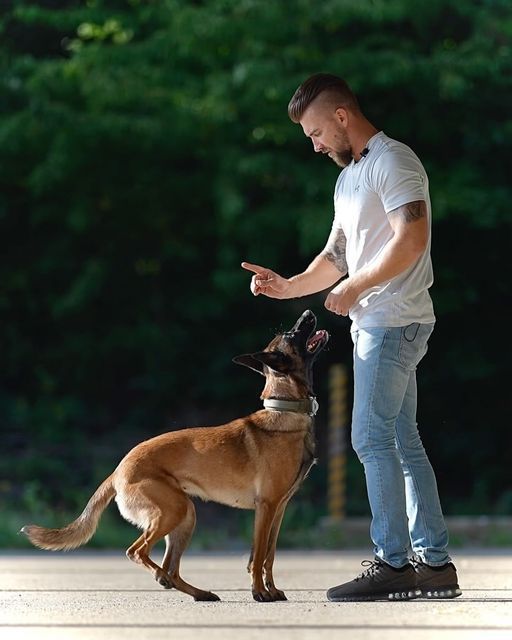While basic obedience training is fundamental for any well-adjusted dog, many owners in Los Angeles find themselves facing more complex challenges than a simple “sit” or “stay.” Behavioral issues, ranging from mild anxieties to severe aggression, require specialized knowledge and a nuanced approach. This is where dog training services offering dedicated behavioral support become invaluable. Understanding what constitutes effective behavioral support and what to look for in a Los Angeles trainer can make all the difference in transforming your dog’s behavior and improving your shared life dog training services Los Angeles.
The Difference Between Obedience and Behavioral Training
It’s crucial to distinguish between general obedience training and behavioral modification.
- Obedience Training: Focuses on teaching commands (sit, stay, come, heel) and manners (not jumping, polite greetings). It’s about teaching a dog what to do.
- Behavioral Modification: Addresses underlying emotional states, motivations, and triggers that drive undesirable behaviors. It’s about understanding why a dog is doing something and changing their emotional response to a situation. This often involves counter-conditioning, desensitization, and management strategies.
Many trainers offer both, but when dealing with significant behavioral problems, seeking a trainer with specific expertise in canine behavior is paramount.
Common Behavioral Issues Requiring Specialized Support
Los Angeles dogs, like any others, can exhibit a range of challenging behaviors that benefit from professional behavioral support:
- Separation Anxiety: Destructive chewing, excessive barking, house soiling, or panic attacks when left alone.
- Aggression: Towards other dogs, strangers, family members, or resource guarding (food, toys, space). This is a serious issue requiring immediate professional intervention.
- Fear and Phobias: Intense fear of loud noises (fireworks, thunder), specific objects, people, or environments.
- Excessive Barking: Chronic barking at everything, often driven by boredom, anxiety, territoriality, or attention-seeking.
- Leash Reactivity: Lunging, barking, or growling at other dogs or people while on leash.
- Destructive Chewing/Digging: Beyond puppy teething, often a symptom of boredom, anxiety, or lack of appropriate outlets.
- House Soiling: In adult dogs, once medical causes are ruled out, this can be a behavioral issue related to anxiety, marking, or incomplete house-training.
What to Look for in a Los Angeles Trainer Offering Behavioral Support
When seeking help for behavioral issues, the qualifications and methodology of the trainer are critical:
- Experience and Specialization: Look for trainers who specifically advertise expertise in behavioral modification, not just basic obedience. They should have experience with the specific issue your dog is facing.
- Force-Free and Positive Reinforcement: This is non-negotiable for behavioral issues. Methods based on punishment (e-collars, prong collars, alpha rolls) can suppress symptoms but often exacerbate underlying fear or anxiety, leading to a breakdown in trust and potentially more severe problems. A qualified behavioral trainer uses positive reinforcement, counter-conditioning, and desensitization to change a dog’s emotional response.
- Understanding of Canine Body Language: A good behavioral trainer can accurately read your dog’s subtle signals, understanding their stress levels, fear, or discomfort.
- Emphasis on Management and Environmental Enrichment: Behavioral support isn’t just about training; it’s also about managing the environment to prevent rehearsals of unwanted behaviors and providing appropriate outlets for your dog’s natural instincts.
- Collaboration with Veterinarians: For many behavioral issues, especially anxiety or aggression, a trainer should recommend a veterinary check-up to rule out medical causes. They may also suggest consulting with a veterinary behaviorist (a DVM with specialized training in animal behavior) for complex cases or medication.
- Owner Education and Support: The trainer should empower you with the knowledge and tools to understand and manage your dog’s behavior long-term. They should teach you how to read your dog, implement strategies, and maintain progress.
- In-Home or Real-World Sessions: Behavioral issues often manifest most strongly in the dog’s natural environment. Trainers who offer in-home sessions or work in real-world LA settings can provide more relevant and effective guidance.
- Certifications: Look for certifications from reputable, science-based organizations such as a Certified Professional Dog Trainer – Knowledge Assessed (CPDT-KA), Certified Behavior Consultant Canine (CBCC-KA), or Karen Pryor Academy Certified Training Partner (KPA-CTP).
Types of Behavioral Support Services in Los Angeles
- Private Behavioral Consultations: Typically involve an in-depth assessment of your dog’s history, environment, and the specific problem behaviors. The trainer then develops a customized modification plan.
- Behavioral Modification Programs: Structured series of private sessions designed to systematically address and change specific behaviors over time.
- Specialized Workshops: Some trainers offer workshops focused on common issues like leash reactivity or fear of strangers.
- Day Training/Board & Train (with caution): If considering these for behavioral issues, ensure the facility adheres strictly to force-free, positive reinforcement methods and provides extensive owner transfer sessions.
Conclusion
Navigating challenging canine behaviors can be frustrating and emotionally draining, but you don’t have to do it alone. Los Angeles offers a wealth of dog training services that specialize in behavioral support. By carefully selecting a qualified, force-free professional who understands the complexities of canine behavior, you can gain the knowledge and strategies needed to help your dog overcome their struggles, leading to a happier, more harmonious life for both of you in the vibrant environment of Los Angeles.




















Leave a Reply